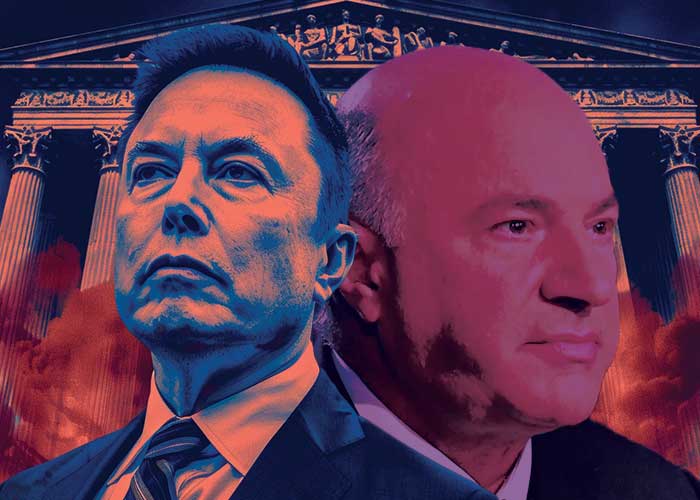OPINION
Dear Friends,
Kevin O’Leary, known for being a star on Shark Tank on the ABC TV Network, where he’s called “Mr. Wonderful”, has slammed Delaware and rightfully calls it a “Loser State” because of what I view as Chancery Court corruption and Kathaleen McCormick’s cronyistic decision on Elon Musk’s pay package, as you’ll see in the Yahoo story below.
O’Leary says the court’s decision takes Delaware from “the winner state column to the loser state column.”
Elon Musk’s response to the decision: “Never incorporate your company in the state of Delaware.”
I’ve been preaching this in my column for years, folks, and to great criticism from some of you who don’t want to hear anything bad about our beloved state.
It’s worth saying that not only have I been shouting about this for years, but TransPerfect led the way out of Delaware after their awful treatment in the Chancery Court. While I’m glad to see Mr. Wonderful and Elon Musk jumping on board, it’s terrible that more companies are being run out of town, so to speak, by the now-worst-in-the-USA Delaware Chancery Court.
What do you think now that so many others are coming around and saying what I’ve been saying? Please send me your feedback on this. It’s welcomed and appreciated.
Respectfully Yours,
JUDSON Bennett–Coastal Network
https://au.finance.yahoo.com/news/loser-state-kevin-o-leary-112800751.html
‘Loser state’: Kevin O’Leary slams Delaware’s ruling to revoke Elon Musk’s $56B Tesla pay package, says he would ‘never’ incorporate in the state today. Here’s why
Jing Pan
Fri, 16 February 2024, 6:28 am
Elon Musk has taken aim at his latest archnemesis: the state of Delaware.
The bad blood seems to be tied to a recent decision by Chancellor Kathaleen St. J. McCormick, a Delaware judge, who voided Elon Musk’s 2018 $56 billion compensation package from Tesla. McCormick’s ruling deemed this sum “unfathomable” and the process “unfair.”
Musk took to X to share his response to the decision: “Never incorporate your company in the state of Delaware.”
This sentiment found resonance with “Shark Tank” star Kevin O’Leary, who expressed worry the decision could have dire repercussions for the state in a recent interview with Fox Business.
“The traditional place to incorporate was always Delaware because of stable policy. We never had cases like this that questioned the will of directors or compensation of audit committees, and all of a sudden this ruling changes everything,” he said, adding that the court’s decision takes Delaware from “the winner state column to the loser state column.”
Winner or loser?
O’Leary expanded on his characterization of the “loser state column,” listing states that, in his view, share this designation.
“Other loser states like New York, New Jersey, Massachusetts, Minnesota, Michigan, California — those are loser states where you avoid putting money to work or doing anything corporately, because their policy is very unstable,” he said.
He expressed his astonishment at Delaware’s inclusion on this list, stating, “I would have never thought this would happen in Delaware, but I would never today incorporate in Delaware.”
Why did Musk choose Delaware in the first place?
O’Leary’s criticisms aside, Delaware has long been a preferred location for the incorporation of America’s corporations. According to the state website, more than half of America’s Fortune 500 companies are incorporated in Delaware. That’s a remarkable statistic given that Delaware is the second-smallest state in the U.S. by area and ranks as the sixth least populous.
The state highlights several advantages for corporations, including the ease of incorporation, a business-friendly environment, swift services from the Secretary of State’s office, and boasts that its Court of Chancery is known for its ability to “issue timely decisions on complex corporate matters.”
Following the court’s decision, Musk has taken concrete steps by moving the incorporation of his brain implant company Neuralink from Delaware to Nevada, sharing his reasoning on X: “I recommend incorporating in Nevada or Texas if you prefer shareholders to decide matters.”

